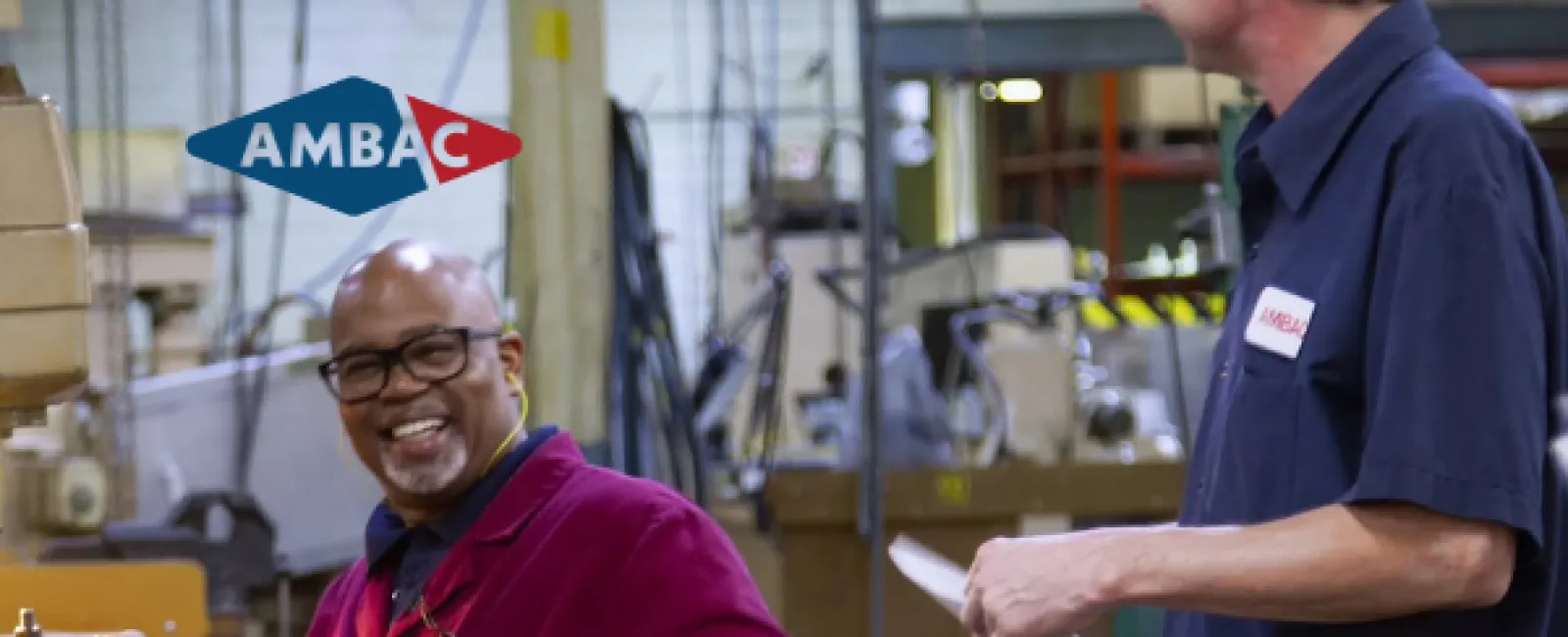As a customer who has purchased
fuel injection products or manufacturing services, you understand the
importance of not only a quality product but a quality company behind the
product. So what makes AMABAC fuel
injection manufacturing unique? Read more to find out…
As a 100-year-old heavy-duty fuel
injection manufacturing company, we like to think of ourselves as the "oldest
startup." How so? Even though we have spent more than a century in manufacturing in the United States, we are constantly looking for innovative
ways to better our heavy-duty fuel injection products for commercial trucks,
but more importantly, we are constantly looking for ways to better our people. And
what began as a heavy-duty diesel, fuel injection manufacturing for commercial
trucks company, has since turned into a company of growing people, and
ideas. But let's start where all good
stories, at the beginning.
AMBAC US Manufacturing & Aftermarket Beginnings
Robert Bosch, the founder in 1906 of the Germany-based
Bosch Magneto Company, built the Springfield Bosch plant, then renamed "Bosch Magneto Co."
later "American Bosch Magneto Corp" in 1911. Early photographs of the factory interior show lab-coated
machinists producing parts for the emerging automobile and truck industry, more
specifically, the heavy-duty fuel injection industry in the United States.
AMBAC
US Manufacturing During World War I & World War II
In
1917 the US Government
confiscated the plant for army supplies during
World War I. Four years later the plant was returned to Bosch and renamed "Robert
Bosch Magneto Company." At this time, the four-story plant employed 3000
workers and turned out 50% of all the electrical starter parts required by the
US vehicle industry. Production begins in 1922 on Diesel Fuel Injection Systems.
Concerned about the loyalties of Bosch
management, at the end of 1941, the United States Treasury assumed formal
operation of the plant and the federal Alien Property Custodian's Office (APC)
took possession of all foreign-owned stock. With ownership issues resolved, the
plant received an additional $4,000,000 in leased machine tools from the FDPC
in the spring of 1942 to expand production. With a focus on manufacturing heavy-duty fuel injection products for commercial trucks and offroad vehicles.
AMBAC US Manufacturing Post War Era
By 1942 Bosch magnetos or fuel injectors appeared in
virtually every U.S.-built plane, battleship, aircraft carrier, destroyer, and
submarine as highly skilled machinists, operators and assemblers turned out
precision parts with very little tolerances.
Sales rose to $13 million in 1941, reached $31
million in 1942, and peaked at $61.2 million in 1944, while in that year
employment jumped to 7,300 from under 1,000 in 1941. The APC paid out small
stock dividends, but chose to set aside close to $2 million in cash to assist
it in what it anticipated would be a costly adjustment to peacetime production,
These cash reserves would figure prominently in the plant's return to civilian
ownership in 1948.
The APC sold the plant in 1948 for $6 million
to AMRA, a two-year-old financial holding company headed by Charles Allen, the
president of the Wall Street investment firm Allen and Company. The holding
company's board of directors included the major partners of several Wall Street
legal firms as well as the presidents of the American Securities Corporation
and the American Overseas Development Corporation.
In 1949 Allen merged the Bosch with ARMA
Corporation, a Long Island, New York defense electronics firm, to form American
Bosch-ARMA (ABA), with headquarters on Long Island. Bosch became one of several
production facilities owned by a financial holding concern with a growth
strategy predicated upon product and market diversification, cost-cutting, and
eventually the construction of low-wage, non-union plants in the South. The
switch from a localized ownership-with at least some concern for the well-being
of the Springfield plant and workforce-to ownership with the ability to play
off against one another the interests of several production facilities in a
search for maximum profits commenced the slow downward slide to closure. A
focus on fuel injection products for heavy-duty trucks and other off-road
vehicles, that were manufactured in the United States, has kept AMBAC
manufacturing at the forefront of the heavy-duty fuel injection history in the
United States over the past century.
AMBAC Manufacturing Today in the United States
In conclusion, formerly American Bosch, AMBAC
Manufacturing and aftermarket in the United States has been manufacturing and
supplying Diesel Fuel Injection Systems for heavy-duty commercial and military
applications since 1910 and many of our original designs are still used by OEM
engine manufacturers today. So how is a 110-year-old company still able to be
a leader in the industry?
Let's look at the example of a common rail fuel pump
that many of our customers were using. Over time, we noticed that the OEM
warranty failure rate was extremely high for this product. Our solution? Our
team of highly trained and knowledgeable technicians deconstructed several
pumps, to determine the cause of the failure. Upon discovering the component of
the fuel pump that was causing the failure, we used our century-plus of
manufacturing and OEM experience to develop a new, and better part, thus
creating a better-performing, more reliable remanufactured fuel pump. We
incorporated our AMBAC - designed solution to make a better performing part.
Why does any of this matter? AMBAC is there whenever
American farmers cultivate, plant, and harvest crops throughout our great
heartland. AMBAC is there whenever American and Allied military forces fight to
preserve our freedom. The world's heavy-duty trucking industry uses our
products to this day. Internationally, electric power generating systems rely
on AMBAC Fuel Systems, Electronic Governors, and Speed Controls. AMBAC is there
because we have been in your shoes. We have driven the truck that has broken
down, we are veterans, farmers, and engineers. We have a century of experience
and a heart of a startup. Our longevity
in the have duty manufacturing industry in the United States ensures that we
have the skills necessary to handle any problem that may arise.
